
It’s all real, and — of course — it was a jew, Arthur Freed.

Freed got away scot-free with this sicko criminal act of whipping his adult stuff out on a twelve-year-old girl.
See her discuss it here, on 14 October 1988, with the CNN jew Larry King…12:40 to 13:56.. with both kind of making light of a serious criminal act…long, long before the “MeToo” movement erupted that said that VIP men are not allowed to rape or force women into sex to keep their job!
It is all outlined also on pp319-20 in her autobiography, Child Star, which Margi bought, read and got me to read in parts.
Jew Larry David admits on SNL that his fellow jews are the worst sexual predators out there, and as always, I prove my claim with the facts: https://johndenugent.com/wp-content/uploads/Larry-David-SNL-Monologue-jew-sexual-predators-5-nov-2017.mp4

.
.
Shirley Temple was truly an old soul, a highly mature little child actress who could sing, dance, and act superbly and had great comic, timing.

She was a sweet, no, adorable child.
.
.
She also mastered the delicate art of a saucy comeback to pompous or phony adults — without being even slightly insolent. You just had to laugh when Shirley told some home truths with an impish smile.
Temple did several movies with pro-Confederate themes, btw, including one where her father was a heroic Confederate officer who kept escaping, and a Yankee colonel comes to respect him and Southerners in general. Another, “The Little Colonel,” had major star Lionel Barrymore playing a former Confederate colonel who still hates the North — but comes to love his Yankee granddaughter, Shirley Temple…..
.
I watched them both with Margi. This girl was incredibly talented in every area.
.
She also did a fine movie about being the granddaughter of a strict old British colonel in British India; the rigid old gent’s heart also was softened, and he risked his life dramatically for her after she had been abducted by a bandit warlord.
Shirley earned $3.2 million in 1930s-40s dollars, about $32 million today, but her father’s business partner [who??? (((???)))] stole all but $44,000 of it, as she learned to her horror on her 21st birthday in 1949 — at the end of her film career. Her window of big earnings had come and gone, and 99% of her pay had been stolen. As she became a young woman, her body got a bit chunky, her hair dark brown, and audiences no longer saw her as adorable.
Later Shirley she became a conservative Republican activist, a GOP fundraiser, and the US Ambassador under President Nixon to Ghana and Czechoslovakia.
Wiki:
Shirley Temple Black (born Shirley Jane Temple;[note 1] April 23, 1928 – February 10, 2014) was an American actress, singer, dancer, and diplomat who was Hollywood’s number one box-office draw as a child actress from 1934 to 1938. Later, she was named United States ambassador to Ghana and Czechoslovakia, and also served as Chief of Protocol of the United States.
Arthur Freed
Jump to navigationJump to search
|
Arthur Freed
|
|
|---|---|
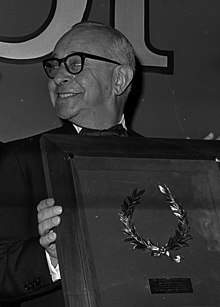
Freed receiving the Screen Producers Guild’s Milestone Award, 1964
|
|
| Background information | |
| Birth name | Arthur Grossman |
| Born | September 9, 1894 Charleston, South Carolina, United States |
| Died | April 12, 1973 (aged 78) Los Angeles, California, United States |
| Occupation(s) | Lyricist, film producer |
Arthur Freed (September 9, 1894 – April 12, 1973)[1] was an American lyricist and Hollywood film producer. He won the Academy Award for Best Picture twice, in 1951 for An American in Paris and in 1958 for Gigi. Both films were musicals. In addition, he produced and was also a co-lyricist for the now-iconic film Singin’ in the Rain.
Early life[edit]
Freed was born to a Jewish family in Charleston, South Carolina,[2][3] and began his career as a song-plugger and pianist in Chicago. After meeting Minnie Marx, he sang as part of the act of her sons, the Marx Brothers, on the vaudeville circuit, and also wrote material for the brothers.[4] He soon began to write songs, and was eventually hired by Metro-Goldwyn-Mayer.[1] For years, he wrote lyrics for numerous films, many set to music by Nacio Herb Brown.[1]
Career[edit]
In 1939, after working (uncredited) in the role of associate producer[5] on The Wizard of Oz, he was promoted to being the head of his own unit within MGM, and helped elevate the studio to the leading creator of film musicals. His first solo credit as producer was the film version of Rodgers and Hart‘s smash Broadway musical Babes in Arms (also 1939),[1] released only a few months after The Wizard of Oz. It starred Mickey Rooney and Judy Garland, and it was so successful that it ushered in a long series of “let’s put on a show” “backyard” musicals, all starring Rooney and Garland.
Freed brought talent from the Broadway theaters to the MGM soundstages including Vincente Minnelli, Betty Comden, Adolph Green, Roger Edens, Kay Thompson, Zero Mostel, June Allyson, Nancy Walker, Charles Walters, orchestrators Conrad Salinger, Johnny Green, Lennie Hayton, and others including Shirley Temple.
Shirley was signed by MGM for her comeback; the studio made plans to team her with Judy Garland and Mickey Rooney for the Andy Hardy series. However, upon meeting with Arthur Freed for a preliminary interview, the MGM producer exposed his genitals to her, telling Temple “I have something made just for you.”[6] When this elicited nervous giggles in response, Freed threw her out and ended their contract before any films were produced.
He also helped shape the careers of stars including Gene Kelly, Frank Sinatra, Red Skelton, Lena Horne, Jane Powell, Esther Williams, Kathryn Grayson, Howard Keel, Cyd Charisse, Ann Miller, Vera-Ellen, and others. He brought Fred Astaire to MGM after Astaire’s tenure at RKO and coaxed him out of semi-retirement to star with Garland in Easter Parade. His team of writers, directors, composers and stars produced a steady stream of popular, critically acclaimed musicals until the late 1950s.
He allowed his directors and choreographers free rein, something unheard of in those days of committee-produced film musicals, and is credited for furthering the boundaries of film musicals by allowing such moments in films as the fifteen-minute ballet at the end of An American in Paris (1951), after which the film concludes moments later with no further dialogue or singing, and he allowed the musical team of Lerner and Loewe complete control in their writing of Gigi (1958).
According to Hugh Fordin’s book The World of Entertainment, however, Freed did have a hand in the stage-to-screen adaptation of at least one of MGM’s musicals, the 1951 Technicolor remake of Kern and Hammerstein’s stage classic, Show Boat. It was Freed who disagreed with the original structure of the show’s second act, in which more than twenty years pass between most of the act and the final three scenes of the musical. He felt that it made for a lack of drama in the story, and so, together with screenwriter John Lee Mahin, Freed hit upon the idea of having the gambler Gaylord Ravenal leave his wife Magnolia while both are still young and Magnolia is expecting a baby, and then having Julie, the half-black actress who is forced to leave the boat because of her mixed-race background, be the person who brings Ravenal and Magnolia back together again after a separation of only a few years rather than twenty. Also, Freed cast Ava Gardner in the role of Julie.[7]
Two of his films won the Academy Award for Best Picture: An American in Paris and Gigi.[1] On the night that An American in Paris won Best Picture, Freed received an Honorary Oscar, and his version of Show Boat was also up for two Oscars that year, though it lost both to An American in Paris. It is important to note that the year 1951, in which Freed won the Academy Award for Best Picture for Paris was the first year that the Academy of Motion Picture Arts and Sciences nominated producers by name rather than by studio. He was the only person nominated for An American in Paris, thus being the first person in the history of the award to win by name rather than by studio. Singin’ in the Rain (1952), now his most highly regarded film, won no Oscars. He was inducted into the Songwriters Hall of Fame in 1972.
Allegations of child sexual abuse[edit]
Shirley Temple Black wrote in her 1988 autobiography that when aged twelve she was interviewed by Freed with a view to transferring her career to MGM. She wrote that during the interview, Freed unzipped his trousers and exposed himself to her.[8]
“Being innocent of male anatomy, she responded by giggling, and he threw her out of his office”, said the actress’s obituary.[9]
She also reported this on Larry King Live when interviewed on October 25, 1988, citing it as the reason she left MGM after only one film and returned to Fox.[10]
Retirement and later years[edit]
Freed left MGM in 1961.[1] He served as president of the Academy of Motion Picture Arts and Sciences until leaving in 1966.[11][12] He died of a heart attack on April 3, 1973.[13]
….The abuse Shirley faced and overcome
Though She Suffered Abuse, Shirley Temple’s Story Is A Model Of Child Star Resilience
In the 1935 film The Little Colonel, Shirley Temple tap-danced down a staircase with Bill “Bojangles” Robinson, and into the hearts of millions. The curly-haired, dimple-cheeked child sang sweetly of life on the good ship Lollipop, but Temple’s real life was anything but smooth sailing. From the first time she appeared on the screen in 1932, she was mistreated and abused both psychologically and sexually. Hollywood tried to hide the flagrant abuses, but many have been well-documented.
Before she retired at the age of 22 in 1950, Temple made dozens of Hollywood films. To accomplish this, she constantly had to fight off lecherous Hollywood moguls who forced themselves on her. On top of that, her first husband cheated on her repeatedly, and her father spent the fortune she had earned without her knowledge or consent. Despite living a life filled with turmoil, Temple wrote in her memoir, Child Star: An Autobiography, that she emerged from this series of traumatic events unscarred. Hollywood is full of tragic stories, but this one thankfully has a happy ending.
-
From Age Three, Temple Endured Horrific Work Conditions
Photo: War Babies / Universal
When Shirley Temple appeared in 1932’s War Babies — her first credited role — she was only three years old. The film was one of the Baby Burlesks, a series of eight shorts that satirized major motion pictures, film stars, celebrities, and current events. In these often sexually suggestive one-reelers, children mimic adults. They dress in adult costumes, but wear diapers fastened with large safety pins. For that particular short, Temple played the part of a sex worker named Charmaine.
In her autobiography, Temple recalls the film series as “a cynical exploitation of our childish innocence.” If any of the two dozen children in Baby Burlesks misbehaved, they were locked in a windowless sound booth dubbed the “punishment box,” where they’d be forced to sit on a block of ice. Temple was sent to the box several times, but she says, “far as I can tell, the black box did no lasting damage to my psyche. Its lesson of life, however, was profound and unforgettable. Time is money. Wasted time means wasted money means trouble.”
Unfortunately, it seems as though the creators of the Baby Burlesks shared Temple’s “time is money” attitude. The young star was once forced to work the day after she underwent an operation to lance her eardrum, and on another occasion was made to dance on a badly injured foot.
-
3
-
MGM Producer Arthur Freed Exposed Himself To Temple When She Was 12
Photo: Bright Eyes / Fox
Shirley Temple achieved international stardom with the release of Bright Eyes in 1934. Between 1935 and 1938, she was the world’s top box office star, leaving Clark Gable in second place. By 1940, however, her best films with 20th Century Fox were behind her. After two box-office flops, Fox dropped her contract.
That same year, and at the tender age of 12, she signed with Metro-Goldwyn-Mayer. At the time, MGM reportedly ran their child stars into the ground by forcing them to shoot film after film so the studio could capitalize on their youthful talent. Tragically, this wasn’t the only way in which key MGM employees exploited the young star.
Temple wrote in her autobiography that on her first visit to MGM, she met one of the studio’s producers, Arthur Freed. During a private meeting, Freed unzipped his trousers and exposed himself to her, saying, “I have something made just for you.” She responded by giggling nervously, and he threw her out of his office. Freed went on to produce films such as “Annie Get Your Gun” (1950) and “Singin’ In The Rain” with Gene Kelly (1953).
-
-
When Temple Was 17, Producer David O. Selznick Tried To Assault Her
Photo: New York World-Telegram and The Sun staff photographer / Wikimedia Commons / No Copyright Restrictions
Anita Colby was artistic director for producer David O. Selznick of “Gone with the Wind” fame. She warned Temple to be careful if she “found him [Selznick] in stockings.” Temple writes in her autobiography Child Star that this gave her “the impression that casual sex could be a condition of employment” with Selznick.
Indeed, it seems it was, as evidenced by an encounter Temple had with him when she was 17:
Coming around my side of the desk, he reached and took my hand in his. Glancing down, I saw the telltale stocking feet. Pulling free, I turned for the door, but even more quickly he reached back over the edge of his desk and flicked a switch I had learned from Colby was a remote door-locking device. I was trapped. Like the cartoon of wolf and piglet, once again we circled and reversed directions around his furniture. Blessed with the agility of a young dancer and confronted by an amorous but overweight producer, I had little difficulty avoiding passionate clumsiness.
-
-
Temple Constantly Fought Off Sexual Predators
Photo: Stage Door Canteen / Wikimedia Commons / Public Domain
For the entirety of her brief film career, Temple was forced to fight off sexual predators, as she was regularly groped, threatened, and terrorized by men. After she rebuked one Hollywood producer for his advances, he responded, “Look, I’m going to be a big executive. We’re going to have to get along… What I had in mind was just a workplace formality.”
“It may be in your contract, but not mine,” she replied.
“Sex is like a glass of water,” the man she simply refers to as “Wizard” continued. “You get thirsty, you drink. You want sex, you have it.”
Then there was the beloved comedian (((George Jessel))), who once invited her to his office to “discuss a key role” in his upcoming film:
We were standing a pace apart, eyeball to eyeball. In one swift movement he opened his trousers and, with a sudden reach, encircled me with one arm… I could feel his other hand groping to lift my shirt. Hard on the heels of the Wizard, this new assault seemed unreal, but little could I do but thrust my right knee upward into his groin… Pain, disgust, and hate flickered across his face, but I felt no mercy. More and more the adult movie business seemed populated with a bunch of copulating tomcats.
-
Temple Forgave Her Father For Robbing Her Blind
In the beginning of Temple’s career with 20th Century Fox, the studio was on the verge of bankruptcy. Thanks to the golden-haired child’s popularity with the American public, that all changed. After a lengthy legal dispute, Temple’s salary at Fox was increased more than six-fold, and her mother received an additional $250 a week. For each completed film, a $15,000 bonus was placed in a trust fund for her, and the amount was later raised to $35,000. However, the world’s highest earning child was only given access to about $13 a month in pocket money.
At her peak, Temple commanded $10,000 a week. One can imagine her surprise when, as an adult, she discovered that despite having earned $3.2 million, she had only $44,000 in her bank accounts. Her father had allegedly failed to place her childhood earnings in the court-ordered trust fund. In her autobiography, the ever-forgiving Temple describes the spendthrift’s financial ineptitude with total dispassion. “For reasons some may find inexplicable, I felt neither disappointment nor anger.”
Temple Sued Graham Greene For Continually Writing Lascivious Things About Her
Photo: Wee Willie Winkie / Fox
Canonical British writer Graham Greene arguably penned some of the best novels of the 1900s [and was a communist-sympathizing “Catholic atheist” [sic]), but his meditations on Temple’s career were considerably less savory. Referring to Temple’s role in Captain January (1936), Greene wrote, “Her neat and well-developed rump twisted in the tap-dance.” At the time of the film’s release, Temple could not have been older than eight.
In his 1937 review of Wee Willie Winkie, he doubled down on his lecherous observations, saying, “Wearing short kilts, she is a complete totsy… watch the way she measures a man with agile studio eyes, with dimpled depravity. Adult emotions of love and grief glissade across the mask of childhood, a childhood skin-deep.”
He continued, “Her admirers — middle-aged men and clergymen — respond to her dubious coquetry, to the sight of her well-shaped and desirable little body, packed with enormous vitality, only because the safety curtain of story and dialogue drops between their intelligence and their desire.”
Thankfully, Temple was given the final word, as she and Twentieth Century-Fox promptly sued Greene and his publisher for libel, and won.
-
One Woman Claimed That Temple Stole Her Daughter’s Soul
One of the most bizarre accusations levied at Temple came in 1939. The accuser believed that Temple had stolen her daughter’s soul, and she went so far as to try to assassinate Temple during a live radio performance of “Silent Night.”
The woman believed that shooting Temple would release her daughter’s soul from captivity, but thankfully, she was unsuccessful.
Temple Was Plagued By Nasty, Untrue Rumors
Photo: The Little Princess / Synergy Entertainment
Whether it was jealousy, animosity, or plain stupidity, nasty rumors abounded around the young Temple. The little girl had a stocky build, and one rumor spread that she wasn’t a child at all, but actually an elderly dwarf. In her autobiography, she wrote that the rumor was so prevalent — especially in Europe — that the Vatican sent Father Silvio Massante to investigate her.
To further perpetuate the myth, some people argued that she never seemed to lose any of her baby teeth, and surmised that this meant she actually had her adult teeth. Another rumor said her teeth had been filed to make them appear like baby teeth. Unsurprisingly, Temple regularly lost teeth, but — as she points out in Child Star — she wore dental plates and caps to hide the gaps in her teeth when she was on-camera.
Temple’s curly blond hair was one of the young actress’s trademarks, so of course some busybodies claimed that she wore a wig. Temple remembers that occasionally, fans would yank her hair to test the rumor. She writes that there were times when she wished that she actually could wear a wig, because of the grueling nightly process she had to endure to maintain her lovely locks, which also included a weekly vinegar rinse that burned her eyes.
Temple’s First Husband Was An Abusive Alcoholic
John Agar starred in a slew of low-budget horror films, such as Revenge of the Creature (1955), Curse of the Swamp Creature (1966), and Women of the Prehistoric Planet (1967). In real life, he was an abusive alcoholic, and 17-year-old Temple married Agar in 1945, though the marriage only lasted about five years
According to Temple’s autobiography, after vows were exchanged, things went from bad to worse. The handsome actor was a violent alcoholic who regularly abused his teenage wife, continually cheated on her, and was frequently arrested for drunk driving. In 1949, Temple sued for divorce on the grounds of mental cruelty. At this time, Agar blamed her, and even tried to derail her appointment to a diplomatic post in 1969 by calling her “emotionally unstable” during her FBI background check.
Temple Was Almost In ‘The Wizard Of Oz’
Photo: The Little Princess / Synergy Entertainment
As a child, Temple was an avid reader, and especially enjoyed The Wizard of Oz series written by L. Frank Baum. In Child Star, she says she was so absorbed in the stories of Oz, that when her mother suggested she could play Dorothy, she replied that she really just wanted to meet Dorothy. In 1937, she learned of a negotiation between Fox and MGM that involved loaning her to MGM for a Wizard of Oz production. Ultimately, the role was given to Judy Garland, who was four years older. Without question, Garland was a more developed singer.
Although this may have been one of the biggest disappointments of Temple’s career, the silver lining was that she was spared yet another assault.
According to Judy Garland, MGM’s studio head Louis Mayer routinely fondled her left breast, telling her that she “sang from the heart.” When Garland finally confronted him about this behavior, Mayer seemed shocked. He told her that he felt he was like a father to her.
-
Temple Helped Her Daughter Kick A Heroin Habit
Shirley Temple’s daughter Lori Black, or Lorax as she was also known, was the child of Temple and her long-time husband, Charles Alden Black. She became a member of the Seattle grunge band the Melvins in 1989, but her rockstar lifestyle came to an abrupt end in 1993, when the 39 year old was arrested for drug possession at an airport in Portland, OR. Prior to her arrest, Lorax had been hospitalized twice for drug-related incidents.
Lorax pled guilty to possession, and was sentenced to two years of probation, followed by 120 hours of community service and a fine of $385. She was also required to attend drug therapy sessions and submit to random drug screenings. Although Lorax claims to have had a difficult relationship with her mother growing up, she credits Temple for helping her kick the habit. Temple also convinced her entire family to participate in the drug sessions for moral support.
Temple Was Thrown In With the Wolves, But Emerged A Lioness
Photo: With Eleanor Roosevelt / Wikimedia Commons / Public Domain
Temple was an idolized child star who charmed President Roosevelt and his wife, shared chewing gum with Amelia Earhart, and sat on J. Edgar Hoover’s lap. The Brown Derby restaurant in Hollywood created the “Shirley Temple” — a nonalcoholic drink originally made of lemon-lime soda, grenadine, and a maraschino cherry — to honor her (though she didn’t care for it).
However, by 1945, the 17-year-old’s golden hair had turned brown, and she was described as “an unremarkable teenager” by film historian David Thomson. After nearly four dozen films, and being recognized as one of the world’s most famous stars, the public was moving on.
At 22, her screen appeal had diminished almost completely, and her divorce from Agar no doubt contributed to her new “adult” image. For whatever reason, she retired from the film business in 1950. That same year, she married Charles Alden Black after a 12-day courtship, and their marriage lasted almost 55 years,until Black’s death in 2005.
During that time, she sat on the boards of corporations and organizations, including The Walt Disney Company and the National Wildlife Federation. Her honors and awards are extensive, and they serve as testament to her ability to overcome the many obstacles and challenges that might have devastated someone with less drive.


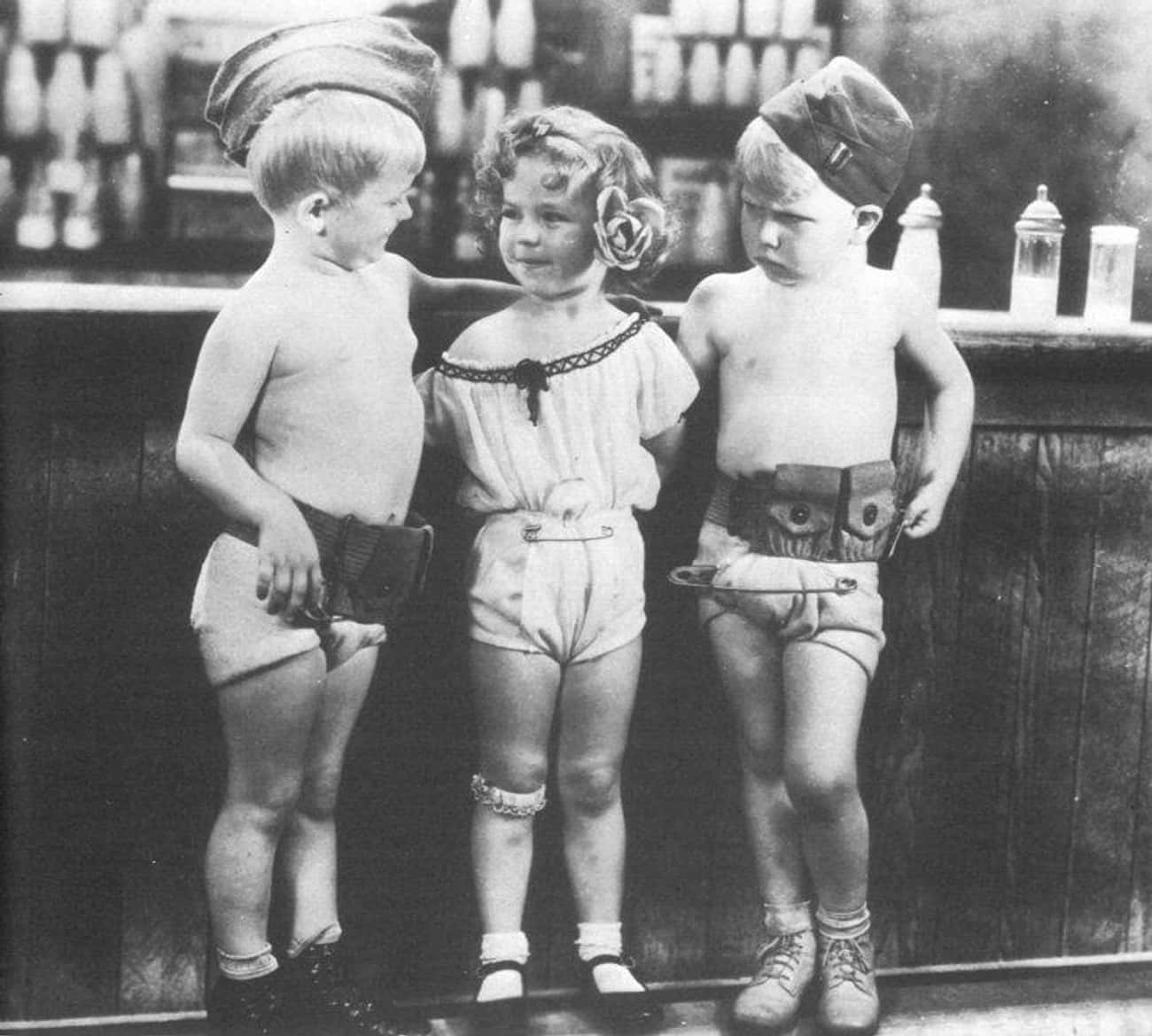
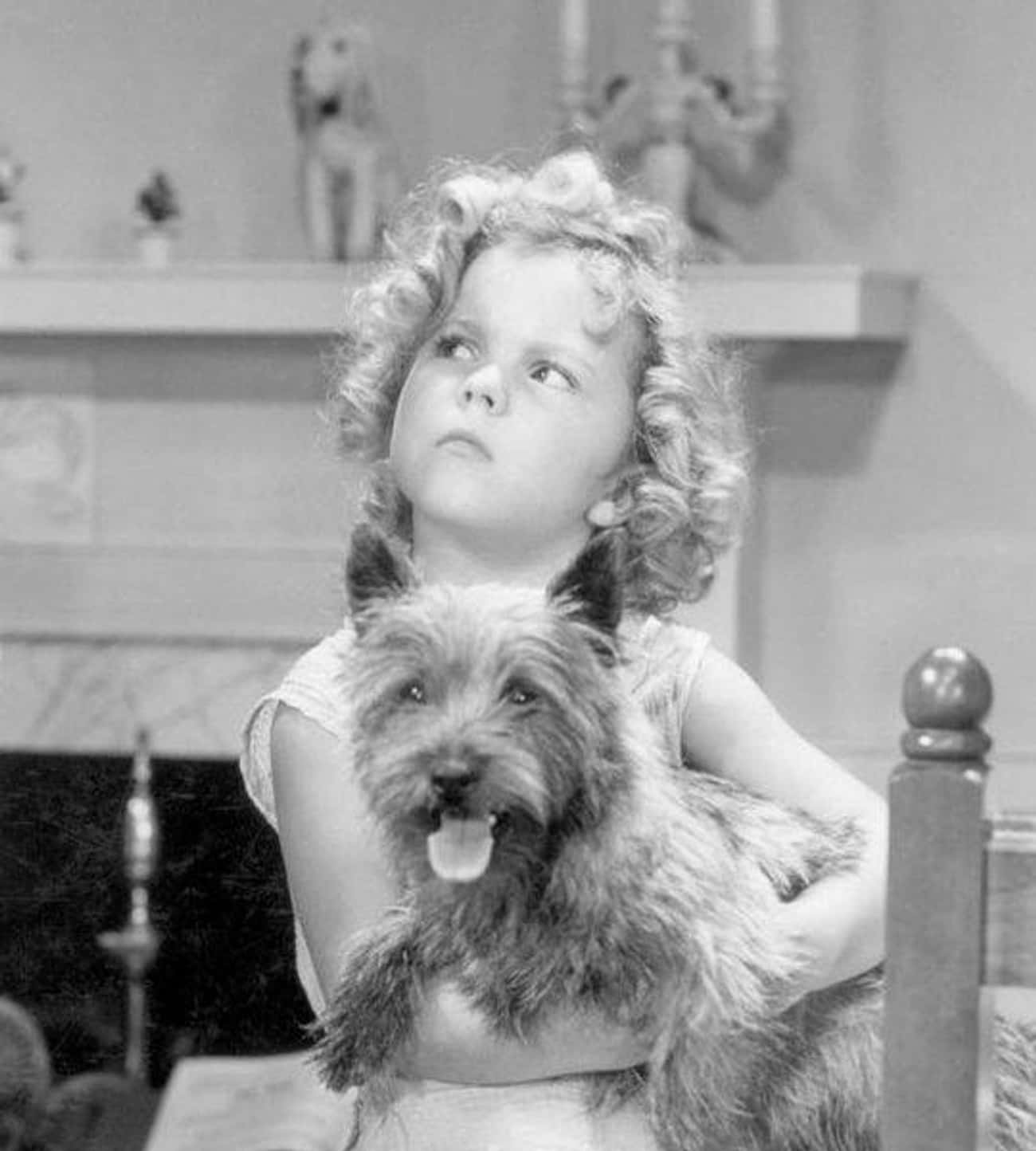
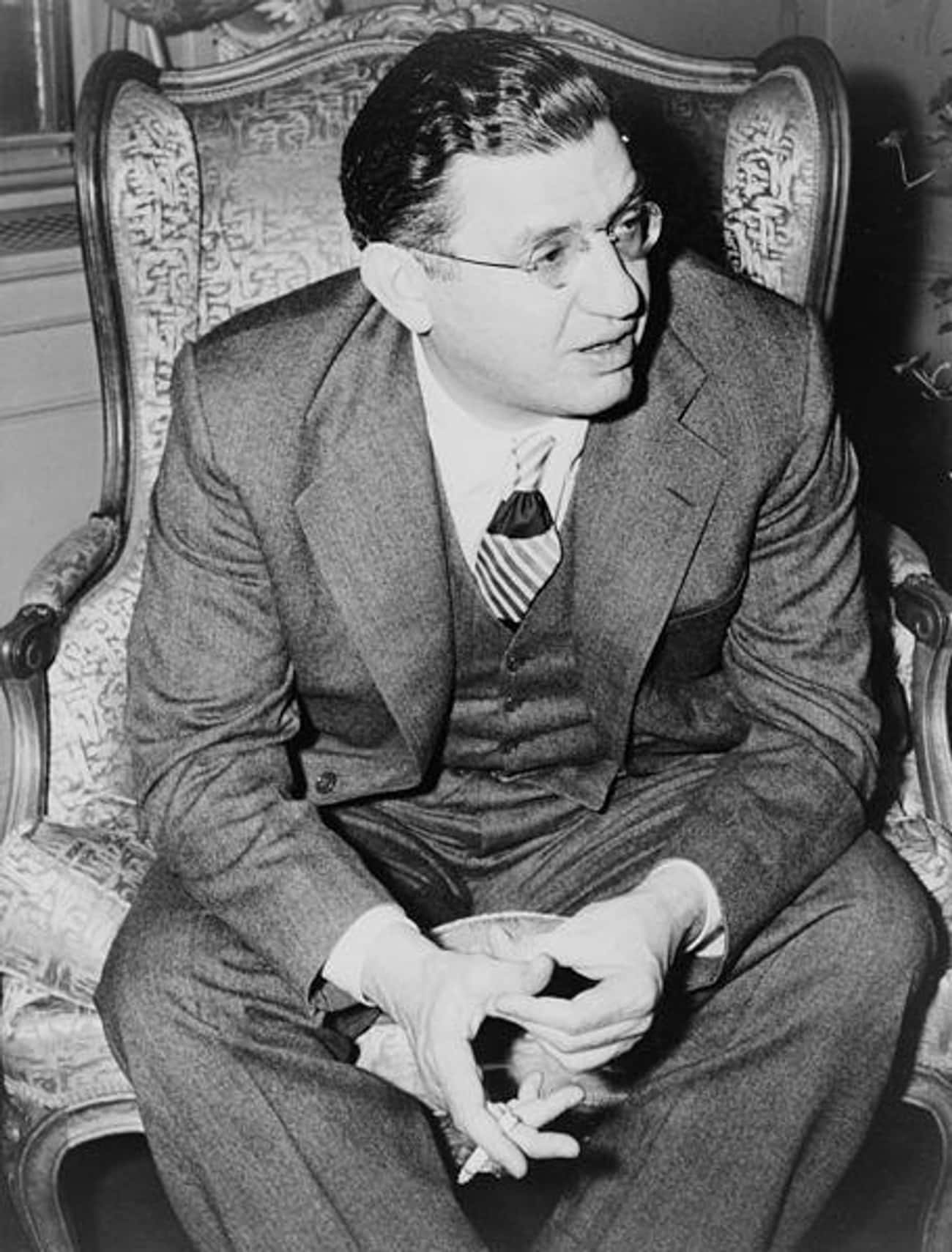
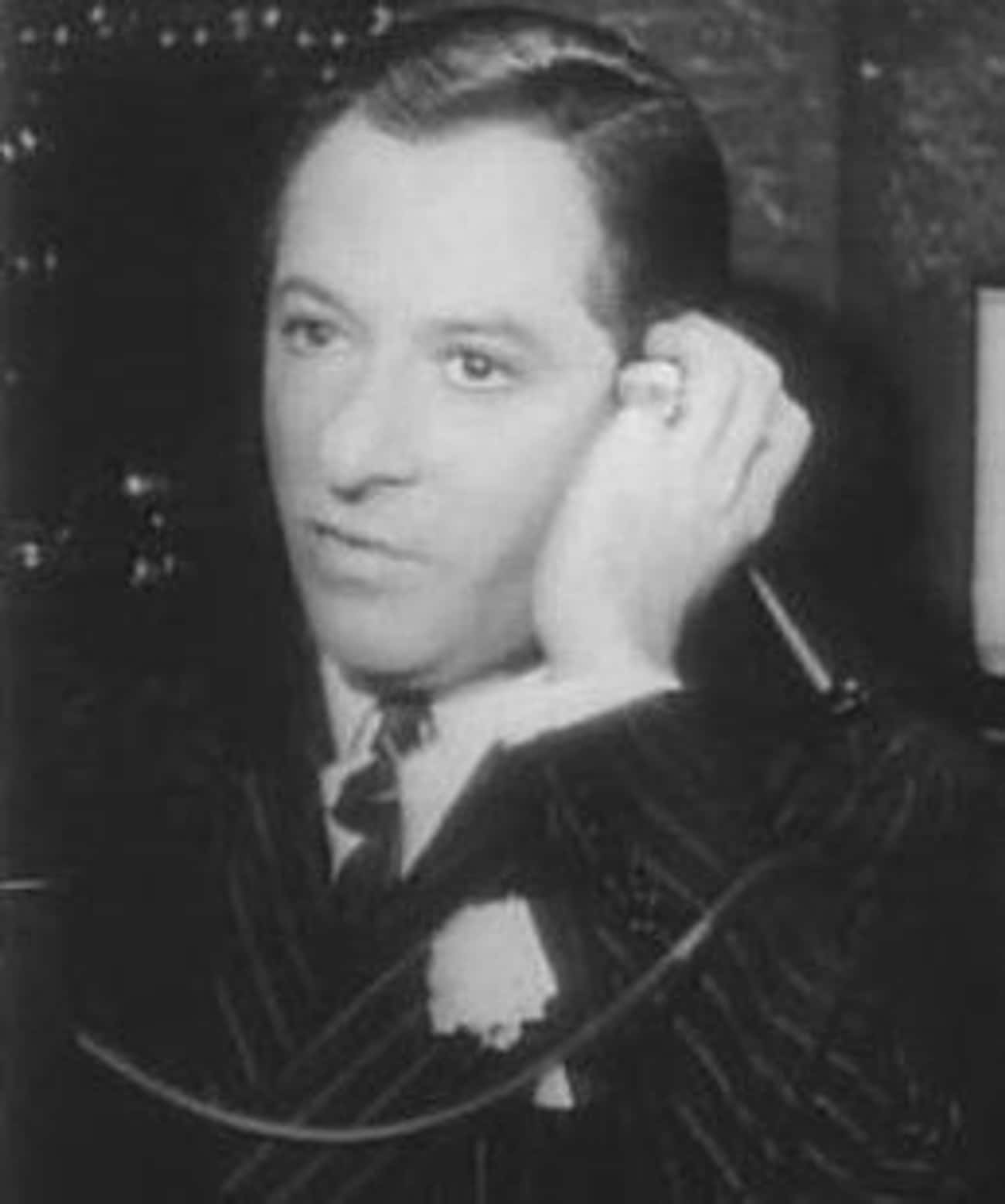
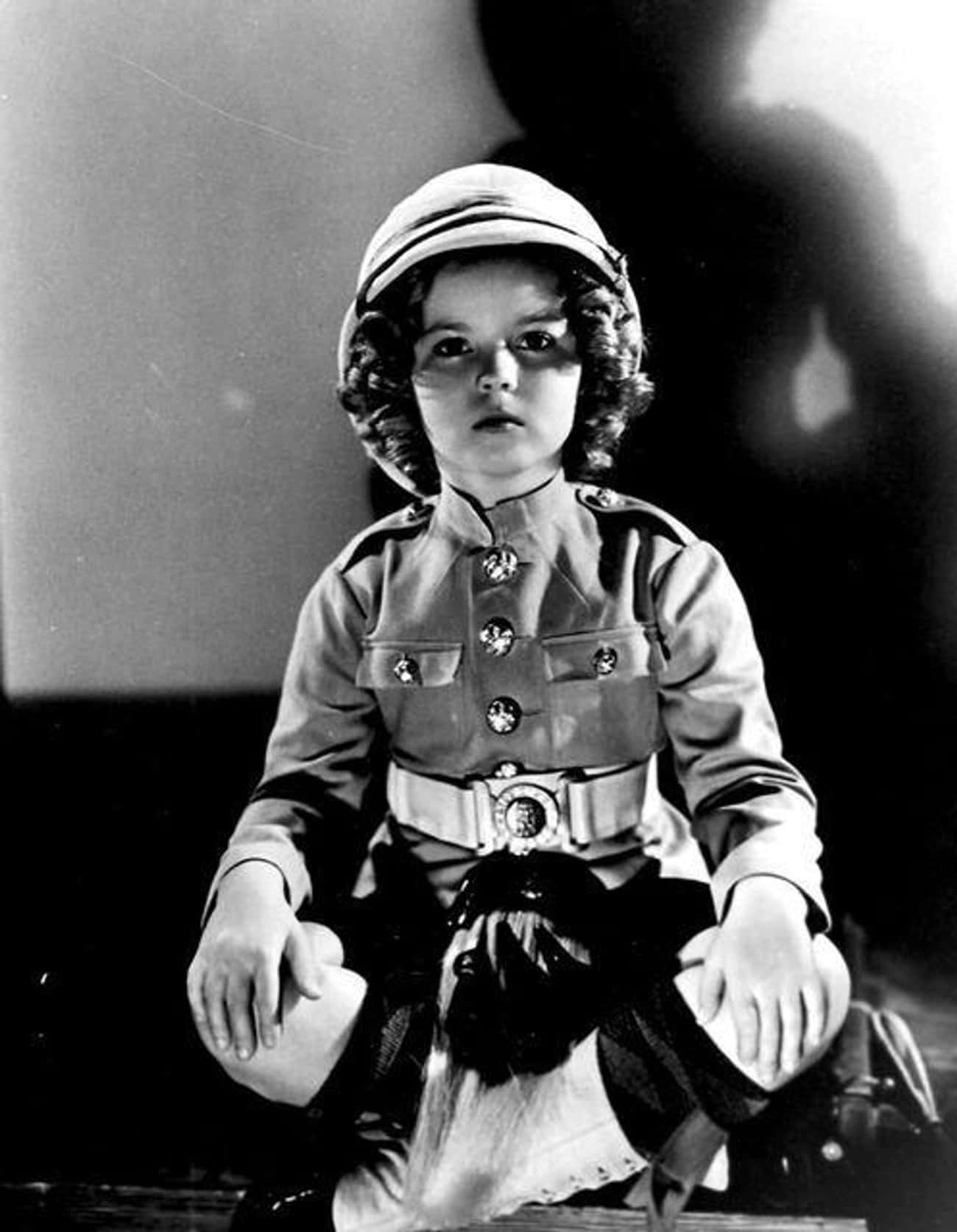
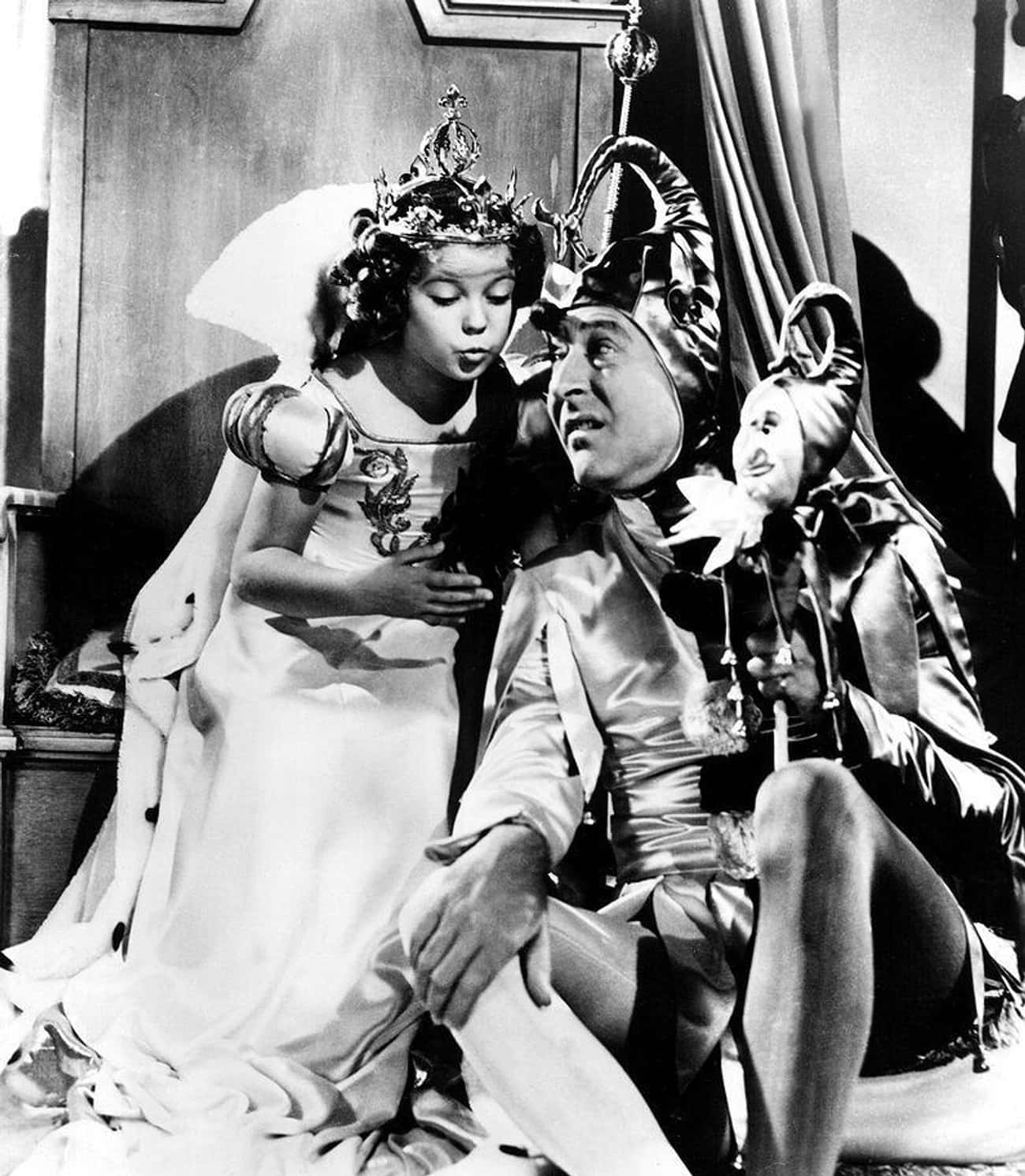
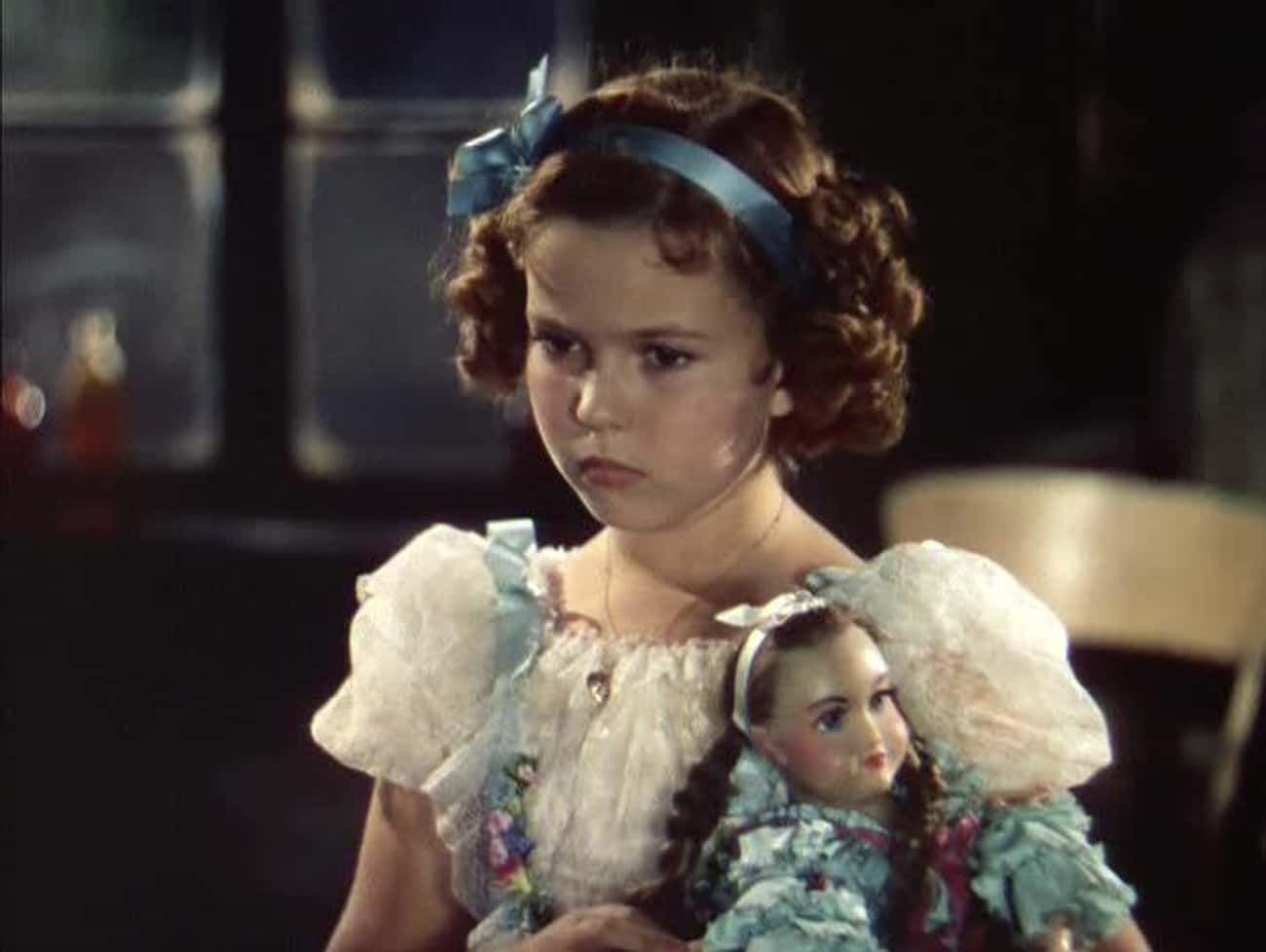
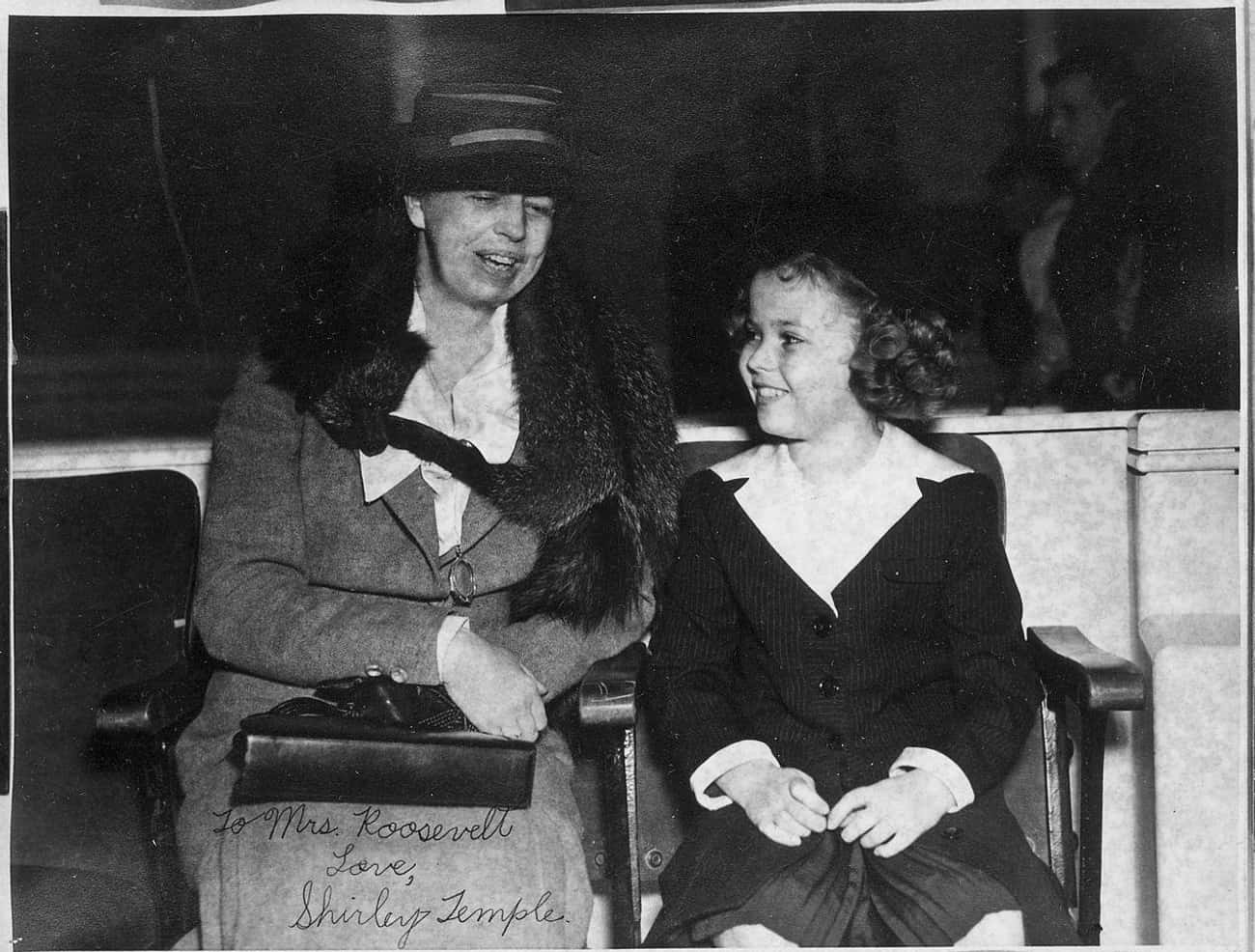
Leo Frank’s ilk.
In the Seth material of Jane Roberts it is said that given abilities were worked out in other incarnations. They are not simply there and they are not only based on corresponding preparatory work in the hereafter, not only on preparatory work for the respective incarnation. Of course, geniuses and high-flyers explain themselves in this way.
Many abilities wait for their (re)discovery and often remain unused because people have no conscious knowledge around them. In rare cases they are also to be put aside in an incarnation because certain subjects are explored to the exclusion of others. Shirley Temple’s performances are certainly based on a synthesis of hard-earned abilities of past incarnations. If you then take into account that within the first 4 years the reverberation of the previous life is at work, before the “new” incarnation has built up and “takes over”, you understand why some (ancient) consciousnesses already at a very young age have more charisma and acting persuasiveness than others.
Generally it is supposed to apply, no matter in which field (dance, music, mathematics, writing, etc.): Either the skills are immediately available again in the new incarnation, or a relatively short time is sufficient to have them available again. Languages already learned in other incarnations are supposed to be correspondingly easier to learn in a new incarnation.
Remember your piece, John de Nugent, about a Vietnamese boy who vehemently refused to learn Vietnamese? A Vietnamese television crew reported he spoke accent-free American English from a young age, his mother cried in phases during the interview, and learned English in night school so she could communicate with him in everyday life. In the boy’s case, native English proficiency was available from the beginning. Perhaps it was an expression of his primary cross-incarnational cultural location; perhaps he was making it clear: “I’m an American!” Didn’t you suggest then, mutatis mutandis, if I remember correctly, that sometimes you get to know the other perspective/culture, that this might be a former Vietnam War participant?
Shirley Temple was/is indeed gifted and very diplomatic in interview and many of her films will remain timeless. Often things are interpreted (also in children’s films) where there is nothing to interpret, as often everything is “psychologized”. The credibility of child protection was also deliberately completely shattered by the divisive ideology of feminism and by the issuing of carte blanche to break the law, for socially underdeveloped women (false accusations [against the father/husband] in child-custody trials, etc.). The carte blanche for socially underdeveloped women in combination with the devastatingly stupid gullibility of the other socially underdeveloped women and men (who believe every lie and false accusation unquestioningly) has, together with feminist annihilation organizations camouflaging themselves as child-protective organizations or [local government agencies, called “CPS” in the States], has led to the almost complete shattering of the credibility of the subject of child protection — to its more or less complete incineration. That is, after all, what was intended.
Mit dieser Einleitung ein Hinweis auf einen Filmausschnitt, auf eine Kompilation teils fragwürdiger, übersexualisierter Filmszenen, der Link zum Youtube-Video stammt aus einem Renegadetribune-Artikel:[1]
“The Lolita Riddle – Part 4: Nabokov and Shirley Temple”,
https://www.youtube.com/watch?v=cLAHVbE51Vg&t=61s
[1] “The Lolita Riddle”, February 21, 2017,
http://www.renegadetribune.com/the-lolita-riddle/
—————————————–
In German: Inkarnationsübergreifend erarbeitete Fähigkeiten
Im Seth-Material von Jane Roberts steht sinngemäß, daß gegebene Fähigkeiten in anderen Inkarnationen erarbeitet wurden. Sie sind nicht einfach da und sie beruhen nicht nur auf entsprechender Vorarbeit im Jenseits, nicht nur auf Vorbereitungsarbeiten für die jeweilige Inkarnation. Natürlich erklären sich so auch Genies und Überflieger.
Viele Fähigkeiten warten auf ihre (Wieder)Entdeckung und bleiben oft ungenutzt, weil die Menschen keine bewußte Kenntnis um sie haben. In seltenen Fällen sollen sie in einer Inkarnation auch zurückgestellt werden, weil bestimmte Thematiken unter Ausschluß anderer erforscht werden. Shirley Temple’s Auftritte basieren mit Sicherheit auf einer Synthese hart erarbeiteter Fähigkeiten vergangener Inkarnationen. Berücksichtigt man dann noch, daß innerhalb der ersten 4 Jahre der Nachhall des Vorlebens am Wirken ist, bevor sich die “neue” Inkarnation aufgebaut hat und “übernimmt”, versteht man, weshalb manche (ur)alte Bewußtseine schon im sehr jungen Alter mehr Ausstrahlung und schauspielerische Überzeugungskraft besitzen als andere.
Generell soll gelten gelten, egal in welchem Bereich (Tanz, Musik, Mathematik, Schreiben usw.): Entweder sind die Fähigkeiten in der neuen Inkarnation wieder gleich direkt verfügbar, oder es reicht eine relativ kurze Zeit, um sie wieder verfügbar zu haben. In anderen Inkarnationen bereits erlernte Sprachen sollen in einer neuen Inkarnation dann auch entsprechend leichter erlernbar sein.
Erinnern Sie sich an Ihren Beitrag, John de Nugent, über einen vietnamesischen Jungen, der sich vehement weigerte, Vietnamesisch zu lernen? Ein vietnamesisches Fernsehteam berichtete, er sprach von klein an akzentfreies amerikanisches Englisch, die Mutter weinte phasenweise im Interview und lernte Englisch in der Abendschule, um mit ihm im Alltag kommunizieren zu können. Bei dem Jungen war die muttersprachliche Englischkompetenz von Anfang an verfügbar. Vielleicht war es ja auch ein Ausdruck seiner primären inkarnationsübergreifenden kulturellen Verortung, vielleicht stellte er damit auch klar: “Ich bin Amerikaner!” Deuteten Sie damals nicht sinngemäß an, sofern ich mich richtig erinnere, daß man manchmal auch die andere Perspektive/Kultur kennenlernt, daß es sich vielleicht um einen ehemaligen Vietnamkriegsteilnehmer handeln könnte?
Shirley Temple war/ist in der Tat begabt und sehr diplomatisch im Interview und viele ihrer Filme werden zeitlos bleiben. Oftmals werden Sachen hineingedeutet (auch in Kinderfilmen) wo es nichts zu deuten gibt, so wie oft alles “psychologisiert” wird. Die Glaubwürdigkeit des Kinderschutzes wurde zudem vorsätzlich vollkommen zertrümmert durch die Spaltideologie Femminismus sowie durch die Ausstellung von Freibriefen zum Gesetztesbruch, für sozial unterentwickelte Frauen (Falschbeschuldigung in Sorgerechtsprozessen usw.). Der Freibrief für sozial unterentwickelte Frauen in Kombination mit der verheerend-dümmlichen Leichtgläubigkeit der anderen sozial unterentwickelten Frauen und Männer (die jede Lüge und Falschbeschuldigung unhinterfragt glauben) hat, zusammen mit feministischen Menschenvernichtungsorganisationen, die sich als Kinderschutzorganisationen tarnen, zur nahezu völligen Zertrümmerung der Glaubwürdigkeit des Themas Kinderschutz geführt, zu deren mehr oder weniger vollständigen Verbrennung. So war es ja auch beabsichtigt.
Mit dieser Einleitung ein Hinweis auf einen Filmausschnitt, auf eine Kompilation teils fragwürdiger, übersexualisierter Filmszenen, der Link zum Youtube-Video stammt aus einem Renegadetribune-Artikel:[1]
“The Lolita Riddle – Part 4: Nabokov and Shirley Temple”,
https://www.youtube.com/watch?v=cLAHVbE51Vg&t=61s
[1] “The Lolita Riddle”, February 21, 2017,
http://www.renegadetribune.com/the-lolita-riddle/
Fantastic, high-quality comment, as always! Thank you!
Margi and I visited the home in Salzburg, Austria in 2007 where Wolfgang Amadeus Mozart was born and raised.
Yes, his father was already a fine musician, and a good man and parent…. BUT the genius of Mozart, a boy who could write symphonies at SIX without any editing, cannot even remotely be explained by “good parenting” and a “nurturing environment.” 😉 Hah!
No, this was the return via the path of reincarnation of a soul that already was a disciplined, enthusiastic musical genius in an earlier life.
DE Außerordentlich hochwertiger Kommentar wie immer! Danke!
Margi und ich besuchten 2007 das Haus in Salzburg, Österreich, wo Wolfgang Amadeus Mozart geboren wurde und aufwuchs.
Ja, sein Vater war schon ein guter Musiker und ein gewissenhafter Vater…. ABER das Genie von Mozart — ein Junge, der schon mit SECHS Lebensjahren ohne Nachbearbeitung Sinfonien schreiben konnte, lässt sich nicht im Entferntesten mit “guter Erziehung” erklären oder eine “musikfördernde Umgebung.” 😉 Ha!
Nein, das stellte die Rückkehr auf dem Weg der Reinkarnation einer Seele dar, die schon in einem früheren Leben ein diszipliniertes, begeistertes Musikgenie war.
FR Commentaire d’une qualité exceptionnelle comme toujours ! Merci!
En 2007, Margi et moi, nous visitâmes la maison à Salzbourg, en Autriche, où Wolfgang Amadeus Mozart naquit et grandit.
Oui, son père était déjà un bon musicien et un père consciencieux…. MAIS le génie de Mozart – un garçon qui pouvait écrire des symphonies à l’âge de SIX sans rédiger ou cvorriger une seule note, ne peut point s’expliquer par une “bonne éducation” ou un “environnement de promotion de la musique.” 😉 Ha !
Non, cela représentait le retour par la voie de la réincarnation d’une âme qui avait été un génie musical, hautement discipliné et enthousiaste, dans une vie antérieure.
When I read the first part of the headline, I was hoping he had said something truthful about their many crimes, but no – he’s just sucking their collective dick again. Yet the ADL even bashed him for that. LOL – what a f’n clown. Note also the photo of him doing the Illuminati “666” hand sign:
https://www.yahoo.com/news/trump-us-jews-act-together-173210106.html
I read her book. Excellent book…The Jewish producers are perverts as her book shows….She met so many people, J.Edgar Hoover, went all over the world.
.
The book was a great look at how the studios worked…
Yes. Margi got me to watch some of her great old movies. What an old soul… a sage in the body of a little kid.